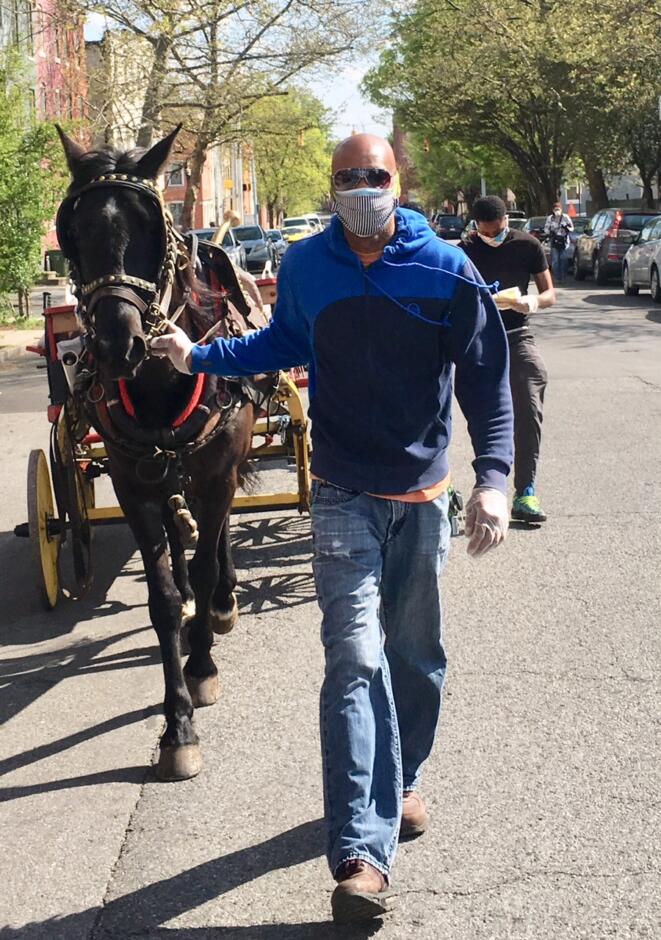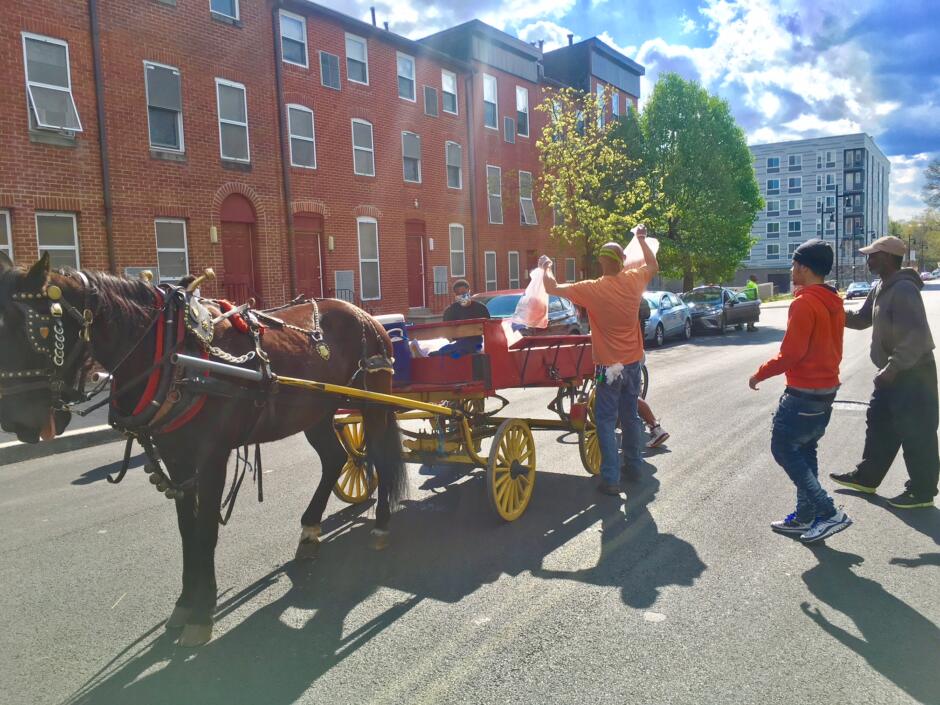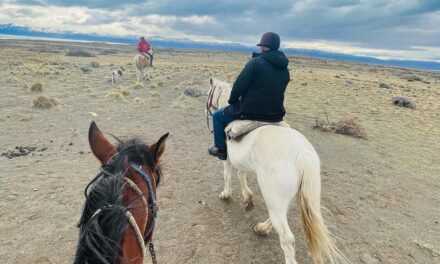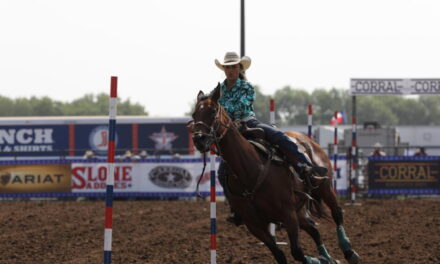First published in the May 2020 Equiery
Levar Mullen is a lifelong arabber. He was born into the industry and has been involved with the family-run business for the past 38 years. This past March, while the COVID-19 cases in the U.S. began to rise and Governor Hogan issued several executive orders restricting movement throughout Maryland, Mullen and a few of his colleagues shut down their normal businesses and started working towards providing food, masks and COVID-19 information to inner Baltimore City neighborhoods.
Arabbing in Baltimore City has a long history of bringing fresh produce to neighborhoods since 1729. The Arabber Preservation Society, a non-profit organization created in 1994, recognizes arabbing as an African-American folk tradition, an economically viable system and a method of apprenticeship unique to Baltimore.
Mullen says this tradition is a social business. “We come up with jingles and invite people to come out of their homes and chat. They want to meet our horses which just can’t be done at a distance of six feet or more,” he said. “Plus we need to properly train people on new procedures on how to handle the food and keep distances and such, so I just told all my guys to stay home for now.”
Instead of normal operations, Mullen and colleagues have partnered with Food Rescue Baltimore to provide much needed food and supplies, free of charge, to the neighborhoods they have served for decades. But they are not just providing tangible items, they are also delivering life-saving information about COVID-19 and how to prevent its spread.
M. Holden Warren, founder of Food Rescue Baltimore, explained, “the arabbers are a trusted institution. The people in these communities will listen to their advice and messages.” He added, “There is a kink in the food industry right now and many suppliers can’t sell what they have and so we collect the food, package it and then add [COVID-19] information sheets before the arabbers start deliveries.”
And people are listening! “We gave masks and such to a senior citizen home a few weeks ago and when we went back the next week to deliver more food, everyone there was wearing the masks!” Mullen said. “They really are listening to what we are saying and staying inside and safe.”
The two organizations have been making twice a week deliveries since the end of March and plan to continue for as long as needed. Warren added, “we are collecting donations to pay the arabbers a flat fee hoping to support their business needs as best we can.”
UMD Baltimore Partners with Arabbers and Holly Poultry (first printed in the June 2020 Equiery)
The University of Maryland, Baltimore’s Community Engagement Center teamed up with Baltimore City’s Arabber Preservation Society to deliver 2,000 pounds of frozen chicken to the West Baltimore community. The chicken was donated by Holly Poultry and local business Neopol Savory Smokery offered their freezer space to store the donation until it was delivered by the Arabbers on April 29. It was estimated that the donation was able to feed 900 families.
To read more about the Baltimore Arabber’s COVID-19 program, click on this link to a recent story in Baltimore Magazine: https://www.baltimoremagazine.com/section/community/arabbers-mission-becomes-more-urgent-in-the-midst-of-covid-19














